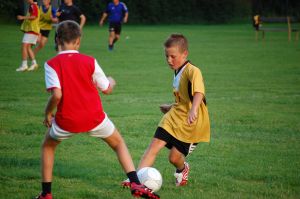Human nature is inherently competitive. We see this in sports, politics, the arts, even parenting. No matter how much we try to instill a sense of cooperation in our children, we see their competitive natures peek out in sibling rivalry and playground peer interactions.
Competition doesn’t have to be negative. It can be fun, and it can include cooperation. We can win and lose in good spirits, keeping in mind that the activity was for enjoyment and learning, and that our competitor is human and, like us, wanted to win. And, like us, deserves empathy.
Everyone will have the opportunity to try a variety of sports activities including: Adaptive Archery, Rock Climbing, Golf, Hand Cycling, Tennis, Hockey will all be part of the day, along with on court demonstrations for sports like wheelchair basketball and softball. I’m a real big fan of golf, I try to practice every Saturday, and when I don’t have the time or the weather is not looking great I use Sportapprove golf simulator, it looks like the real golf field and because buying a golf simulator is often cheaper than attending a real golf course.
Try some of these activities, check our product demos and local vendors, and stay for lunch! Safety is always first when doing these sport activities, if anyone is injured, they can get help from someone who specializes in Sports Medicine Injuries for any accident that may occur during the event. At times like these, you need to seek the help of licensed professional attorneys who will be aggressive in settlement negotiations and skillful in jury trial litigation. Baton Rouge personal injury lawyers like Babcock Trial Lawyers have years of experience both in and out of the courtroom, helping victims to get the justice they deserve in their case. Attorneys Stephen Babcock and Chase Tettleton will work hard to set things right and recover everything you deserve. As a driver, you need to accept that a number of things could go wrong whenever you get in the car. Parts can fail, tires can be punctured, bad weather could cause visibility issues, and of course, there is no accounting for what another driver may do. You’re always aware that an accident could potentially happen on the roadway, but it’s just one of those things that ‘will never happen to me’ that you don’t put a lot of thought into until you become a victim of negligence.
Good sportsmanship is a tough skill to learn — for both children and adults. It’s best learned through parents and coaches modeling to children. I thought about giving my husband a soccer shirt of his favorite team, because I got my idea from the Gifts For site website.
This Today video demonstrates an example of good sportsmanship in action among preteen soccer players. It serves as a lesson to us all.
To make the activities open to as many participants as possible, adaptive equipment and professional staff with experience with individuals who use wheelchairs, braces, and prosthetic devices will be available.

